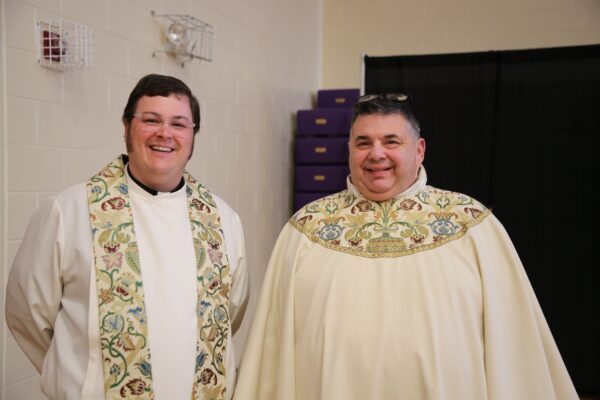CHEVERUS HIGH SCHOOL GRADUATE PROFILE
As a Jesuit high school, and a member of the Jesuit Schools Network, we strive to graduate students who possess the desire and the personal resources to be people for and with others, as detailed in the Profile of the Graduate at Graduation. Our goal is to help form leaders of competence, conscience, and compassion who will work for justice and quality of life for all.
Religious
By graduation the student will have a basic knowledge of the major doctrines and practices of the Catholic Church. Having been introduced to Ignatian spirituality, the graduate will also have examined his or her own religious feelings and beliefs with a view to choosing a fundamental orientation toward God and establishing a relationship with a religious tradition and/or community.
Loving
By graduation, the student is continuing to form his or her own identity. He or she is moving beyond self-interest or self-centeredness in close relationships. The graduate is beginning to be able to risk some deeper levels of relationship in which one can disclose self and accept the mystery of another person and cherish that person.
Committed to Doing Justice
By graduation the student has acquired considerable knowledge of the many needs of local, national, and global communities and is preparing for the day when he or she will take a place in these communities as a competent, concerned and responsible member. The graduate has been inspired to develop the awareness and skills necessary to live in a global society as a person for and with others.
Open to Growth
By graduation, the student has matured as a person — emotionally, intellectually, physically, socially, religiously — to a level that reflects some intentional responsibility for one’s own growth. The graduate is beginning to reach out in his or her development, seeking opportunities to stretch one’s mind, imagination, feelings, and religious consciousness.
INTELLECTUALLY COMPETENT
By graduation, the student will exhibit a mastery of those academic requirements for advanced forms of education.
While these requirements are broken down into departmental subject matter areas, the student will have developed many intellectual skills and understandings that cut across and go beyond academic requirements for college entrance. The student is also developing habits of intellectual inquiry, as well as a disposition towards life-long learning.




